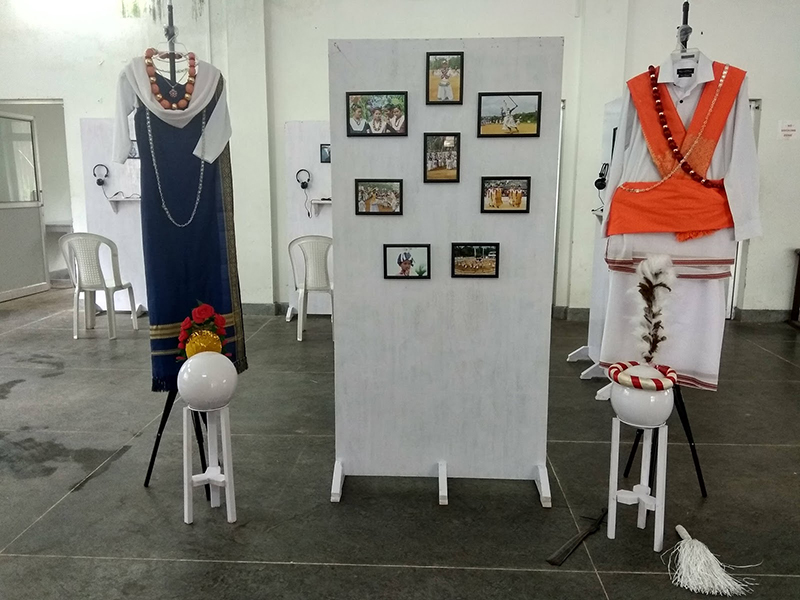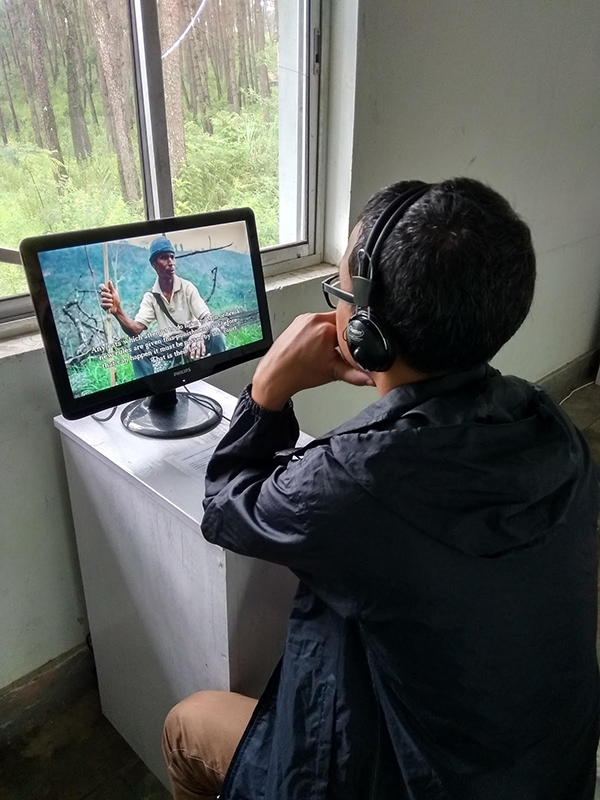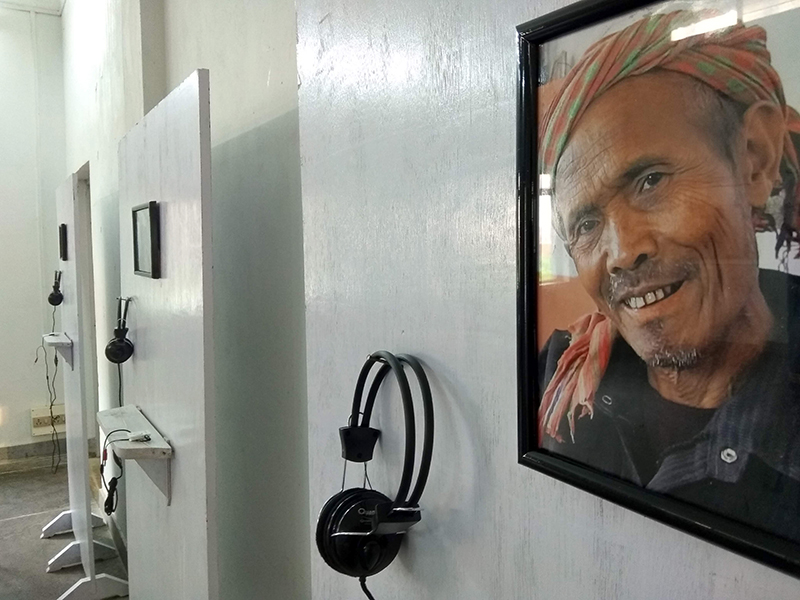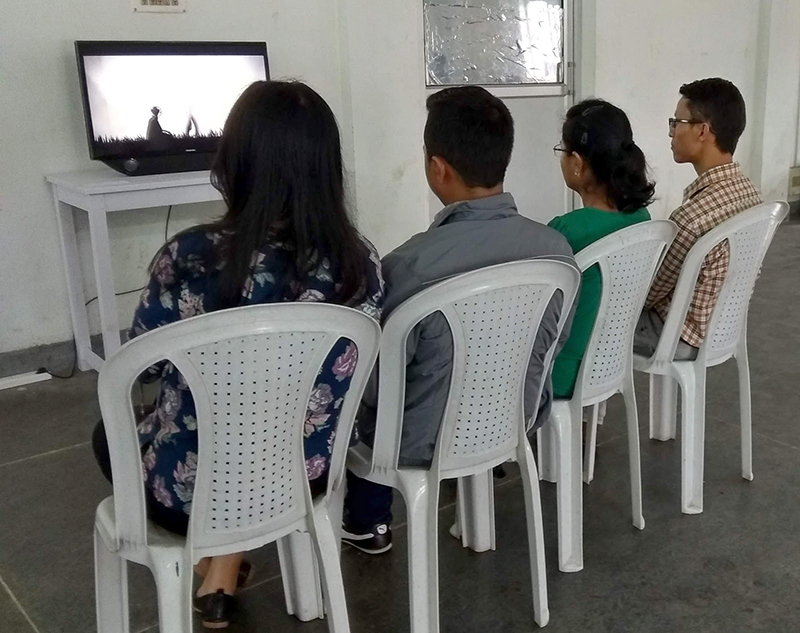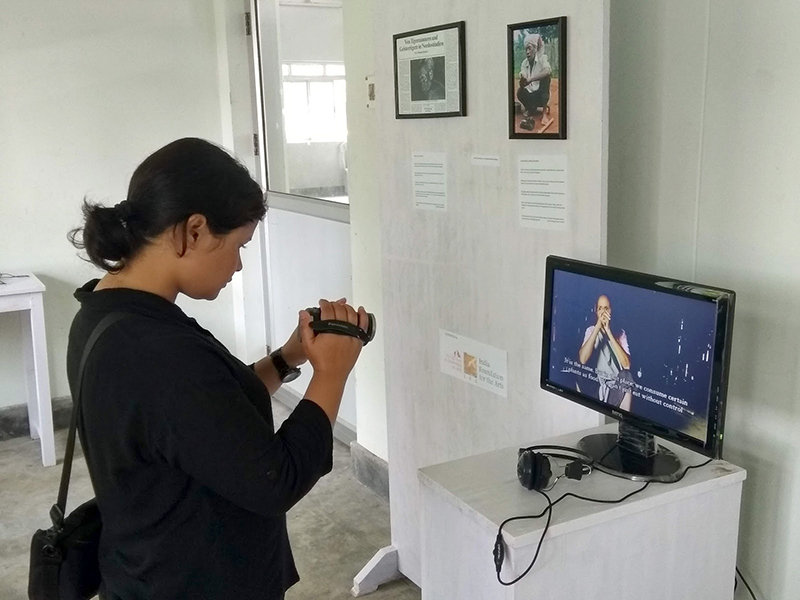Avner Pariat
Grant Period: over one year and six months
Avner Pariat is a researcher based in Shillong. With a background in Mass Communication, Avner works with the Doordarshan Kendra in Shillong. He has a deep interest in history and politics and is especially interested in the questions of origin and future of the Khasis. This grant enables him to research into the narratives of the tiger as a cultural, social and political symbol in Khasi cultural practices.
Avner, like most other children do in Meghalaya, grew up listening to stories on various creatures that once roamed freely through the Khasi-Jaintia hills. Often in those stories, the animals would be anthropomorphic and interact casually with human beings. These narratives are part of a collective trove that gets passed on from one generation to the other in Khasi families.
The tiger, across various cultures, is an important part of folktales. It represents power - awe-inspiring and frightful. In the Khasi stories, the tiger, called the khla (pronounced kha-la, in Khasi), is often portrayed as an ancestral spirit or a family protector. Many Khasi clans draw their origin myths directly from the khla. In other stories, the man and the beast become one, dissolving all human-animal binaries. Most of these stories, like the rest of the Khasi lore, exist in the oral tradition and are not transcribed in any medium, although a few tiger-related cultural artefacts and relics do exist. It was only with the introduction of the Roman script in the 1840s that one finds definitive accounts of the various communities that inhabited Meghalaya and their socio-political and cultural institutions. Tales about the tiger have been recorded in these accounts and in the writings of various authors like Donboklaloo, Soumen Sen and also Avner’s grandfather I M Simon. Additionally, there have been accounts by the British that refer to these stories. More recently, a few critical works on the place of the khla in Khasi culture have been produced by scholars such as Desmond Kharmawphlang and Phillipe Ramirez.
Building on this work, Avner’s project seeks to further investigate into the place of the khla in Khasi cultural traditions. It attempts to understand the gender and political connotations of the tiger; the transitions that have taken place in the tiger cult of Meghalaya post the influence of Christianity; and the changes in human-tiger relationships that have been affected by the modern environment laws. In order to delve into these, Avner will undertake extensive field trips across the Khasi regions in Meghalaya and conduct detailed interviews with elders in the communities, particularly in places like Sutnga, Pahambir, Nongtalang, Umkiang and Nongsteng. Since a majority of the state’s population is now Christian, it would be imperative for him to record the knowledge of members of the minority indigenous faith followers such as priests, mendicants and faith healers. Alongside this, recordings of festivals, ceremonies, folk dances, folk songs and archival footage will also be sourced. Also, the Department of Folkloristics at the North Eastern Hill University, which has a rich collection of material on the khla, has agreed to provide access to their collections.
All oral narratives and physical material generated during the field trips will result in an exhibition at the end of the project. Considering the varied nature of materials that may arise from the research, Avner feels that an exhibition would be an innovative way of capturing the material and an engaging way for audiences to participate in the project. Tentatively titled ‘Cult of the Khla’, the exhibition will open in Shillong and will then move to other places.
Simultaneously, Avner will also maintain a website or a blog where all the audio-visual material from this project will finally be made accessible. He is also considering the possibility of bringing together the folktales and origin myths in the form of an audiobook.
Photographs from the field trips and the exhibition and audio / video recordings of the interviews will be Avner’s deliverables to IFA.

